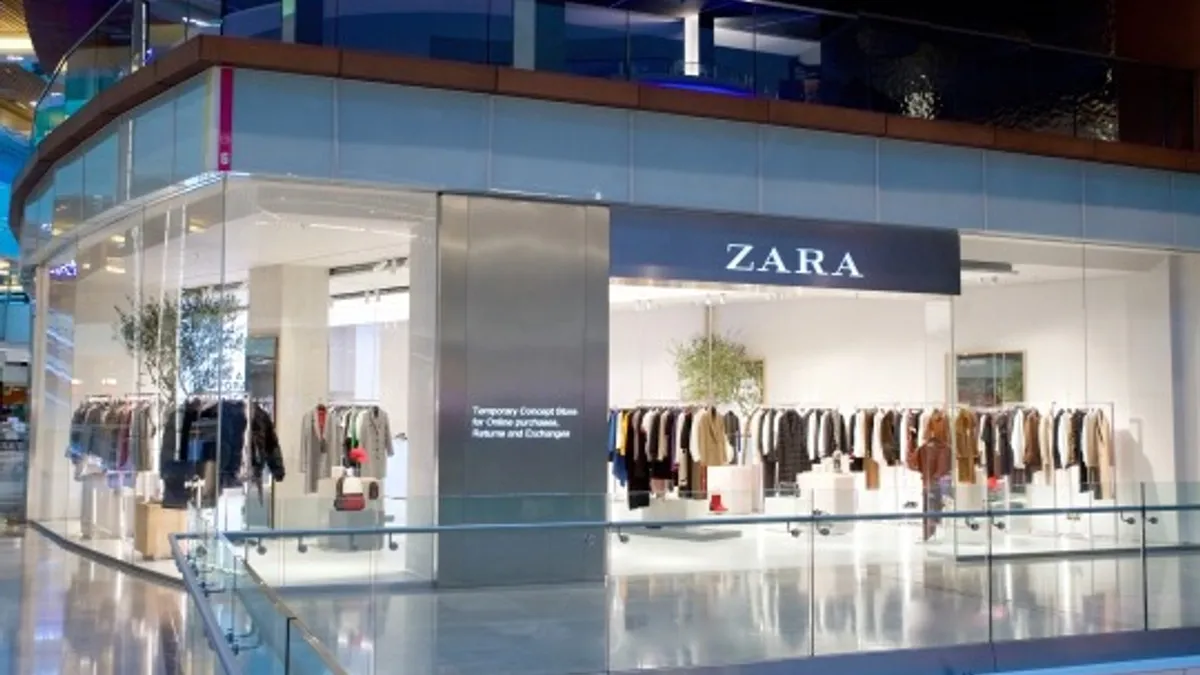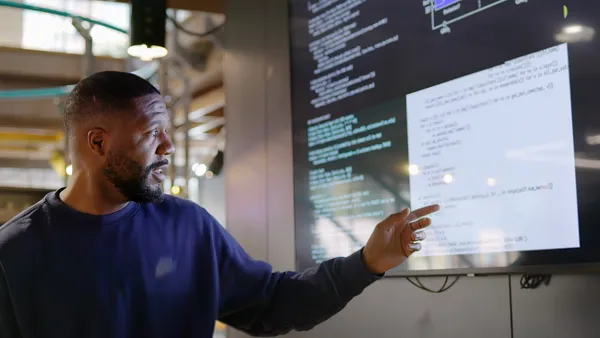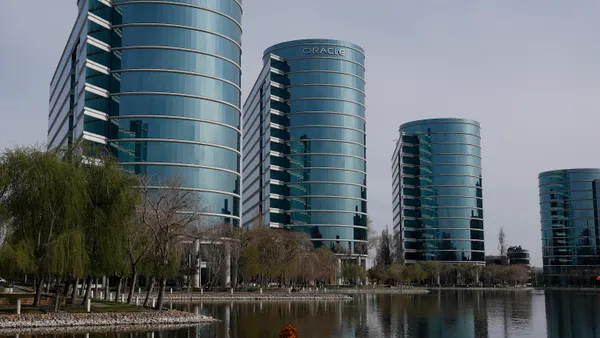Dive Brief:
- Zara is incorporating artificial intelligence, automation and big data into its business strategy and supply chain in a bid to stay ahead of competitors, reports Reuters. The fashion retailer is hiring talent from startups and partnering with Jetlore, which offers an AI-powered consumer behavior prediction platform, and El Arte de Medir, a Spanish big data company.
- The innovation unit of Zara's parent company, Inditex, is working with Intel on devices to measure clothing volume in boxes and Fetch Robotics on robot deployment for stock inventory, according to Reuters. Micro-chips from Tyco, an alarm provider, are also used to track product data and locations along the supply chain.
- Last week, Inditex posted record first quarter sales of more than $6.7 billion, with positive same-store sales growth across all geographies.
Dive Insight:
Retailers are betting on customer-facing technologies, such as augmented reality applications, virtual assistants and AI-powered chatbots, to keep up with the herd of increasingly digital-savvy retailers. But the technology going on behind the scenes and on the business side is just as important as what the customer experiences.
The retail Internet of Things market is projected to reach $94 billion by 2025, improving accountability and management in supply chains and creating more touch points to measure customer data and behavior. Meanwhile retail spending on AI is expected to reach $7.3 billion by 2022 as more businesses onboard automation, chatbot, personalization and analytics solutions, among others.
Competitors like H&M are looking at advanced analytics, new technologies and supply chain optimization to turn financials around and build out resilience. Zara has continued to out-do its rivals, adjusting to brick-and-mortar needs and supporting integrated store-online models, and keeping abreast of advanced technologies will facilitate the "full integration between store and online stock rooms" that Inditex CEO Pablo Isla is pursuing.













